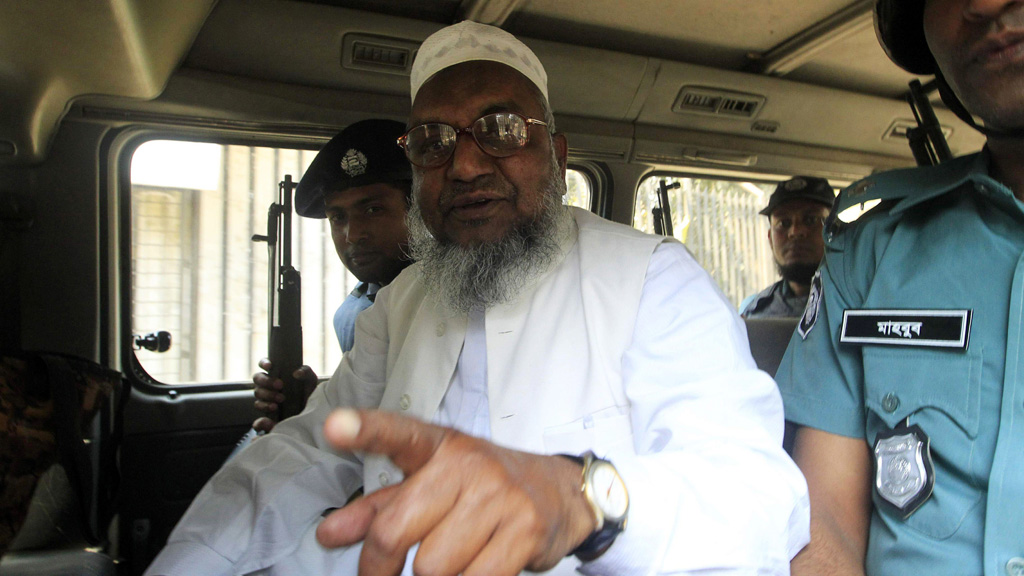Bangladesh executes Islamist opposition leader Mollah
After the supreme court rejects his lawyers’ last-minute appeal, Islamist opposition leader Abdul Quader Mollah is hanged at Dhaka central prison for war crimes committed in 1971.

Mollah, 65, had been sentenced for crimes committed during his country’s war of independence against Pakistan.
His execution is expected to lead to a wave of violence ahead of elections due to take place next month. Mollah’s party – Jamaat-e-Islami (JeI) – is an ally of the main opposition Bangladesh National Party. JeI had warned of “dire consequences” if his execution went ahead.
Protestors, many of them students, have been gathering at a major Dhaka intersection since Tuesday evening, in anticipation of the sentence being carried out.
In February a special tribunal found Mollah guilty of killing a student and a family of 11, and of helping Pakistani troops kill 369 others during the nine-month-long independence war in which some three million people died.
Until 1971 Bangladesh was known as East Pakistan, and Mollah’s party, JeI, campaigned against independence as it opposed the break-up of Pakistan, an Islamic nation.
Unfair trial?
Mollah was sentenced to life imprisonment by the tribunal, but in September that was changed to a death sentence by the supreme court, leading to violent clashes and a nationwide general strike.
On 9 December, two independent United Nations experts urged the Bangladeshi Government to halt the execution.
Gabriela Knaul, the Special Rapporteur on the independence of judges and laywers, said “the right of appeal is of particular importance in death penalty cases.” Both Ms Knaul and Christof Heyns, the Special Rapporteur on summary executions, reiterated their concerns that the defendant had not been granted a fair trial.
Mr Heyns warned that: “only full respect for stringent due process guarantees distinguishes capital punishment as possibly permitted under international law from a summary execution, which by definition violates human rights standards.”
However on Thursday a panel of five judges, led by Chief Justice Mohammed Mojammel Hossain, rejected a petition that could have led to the review of the death penalty.
Bangladesh has seen violent protests for weeks staged by the opposition in support of its demands for an independent caretaker government to oversee the general elections due on 5 January.